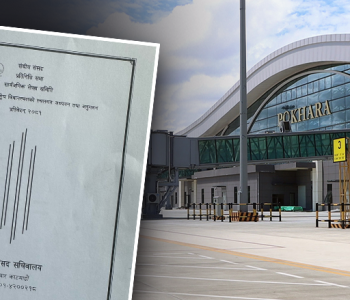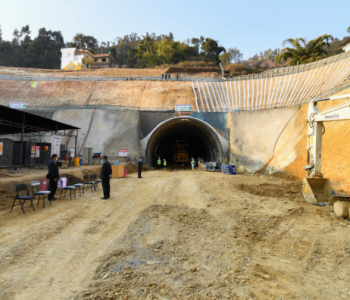Banks facing problems recovering loans amid COVID-19 pandemic

KATHMANDU: Banks and financial institutions (BFIs) are at present facing difficulties in recovering their loans from borrowers. Since the coronavirus pandemic has affected the entire economy including the real estate sector BFIs are facing problems even to sell the collaterals that had been put up for auction.
Banks and financial institutions usually auction the collaterals within one to two years of a loan default by inviting sealed bids. During the lockdown and prohibitory period most BFIs had expedited the process of recovering such loans and had called for sealed bids from interested parties.
However, the banks have not received any application so far. As a result, banks have been repeatedly calling for bids for those collaterals.
Bhuwan Dahal, president of Nepal Bankers’ Association and chief executive of Sanima Bank, informed that though banks have expedited the process there has been a problem in recovering the loans by auctioning the collaterals.
He said that some banks have stated that the sale of collaterals has slowed down. According to him, such sales have been delayed as some of the debtors have sought legal recourse and also because some banks have not been able to sell the collaterals due to the coronavirus.
As per NBA, though the price of real estate in Kathmandu valley has gone up to some extent in recent days, the price outside the valley has declined. “Transactions of land and property outside the valley has dropped as the price of real estate has decreased due to which banks are facing problems in selling the collaterals and recovering their loans,” mentioned Dahal.
“May be this is the reason why BFIs are repeatedly seeking bids for such property.”
Due to the pandemic most people are now more concerned about saving for the future rather than spending on luxury items or investing in real estate, said Govinda Dhakal, president of Nepal Development Bankers’ Association. He further added that people have developed a mindset of not investing in cars, clothes and real estate at the moment.
Dhakal too stated that banks might have invited bids several times as they have not been able to auction the collaterals at the price that they were initially evaluated as the real estate sector is facing a downturn.
According to a provision of Nepal Rastra Bank, BFIs have to classify the defaulted loans and make a provision accordingly.
It is necessary for BFIs to keep defaulters on a watchlist initially for three months and make a provision of five percent. If the loan and interest has not been paid for three to six months then such loans must be kept in a lower category and a 25 percent provisioning must be made. Loans and interests that have not been paid for six months to one year must be classified as dubious and 50 percent provisioning must be done. NRB has made an arrangement to classify loans that have not been paid for over a year as bad loans and 100 percent provisioning is required for such loans.
BFIs can publish a notice to repay loans in 35 days, 15 days and 7 day. However, prior to that, banks have to send a letter to the borrower asking them to repay the loan. If the defaulter still does not pay the loan then the concerned bank can start the process of auctioning the collateral. After evaluating the collateral, banks publish a seven-day notice inviting sealed bids to auction the collateral and recover the loan.













Facebook Comment